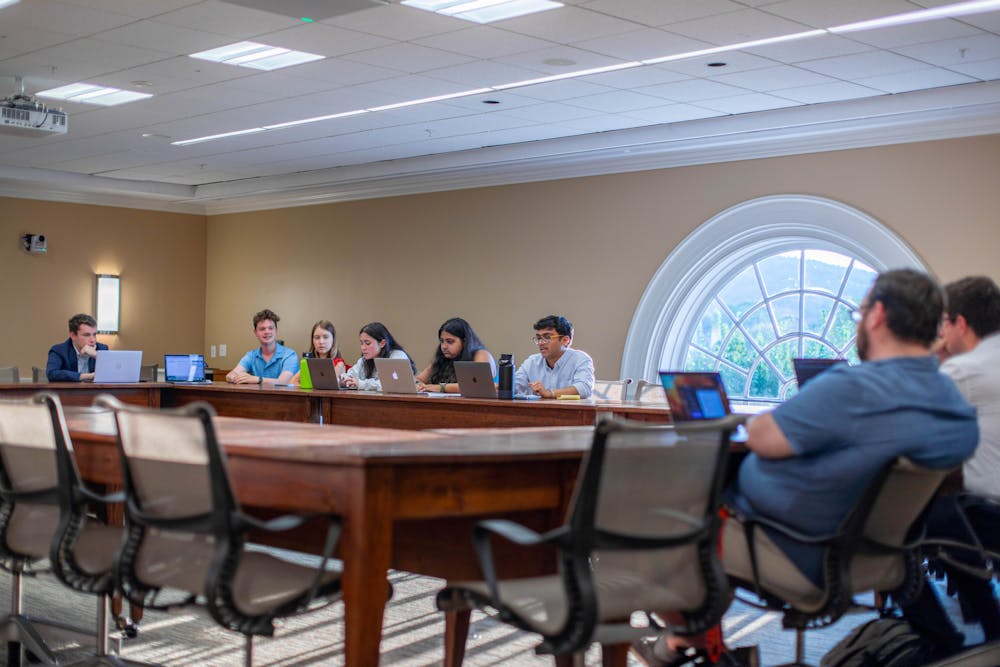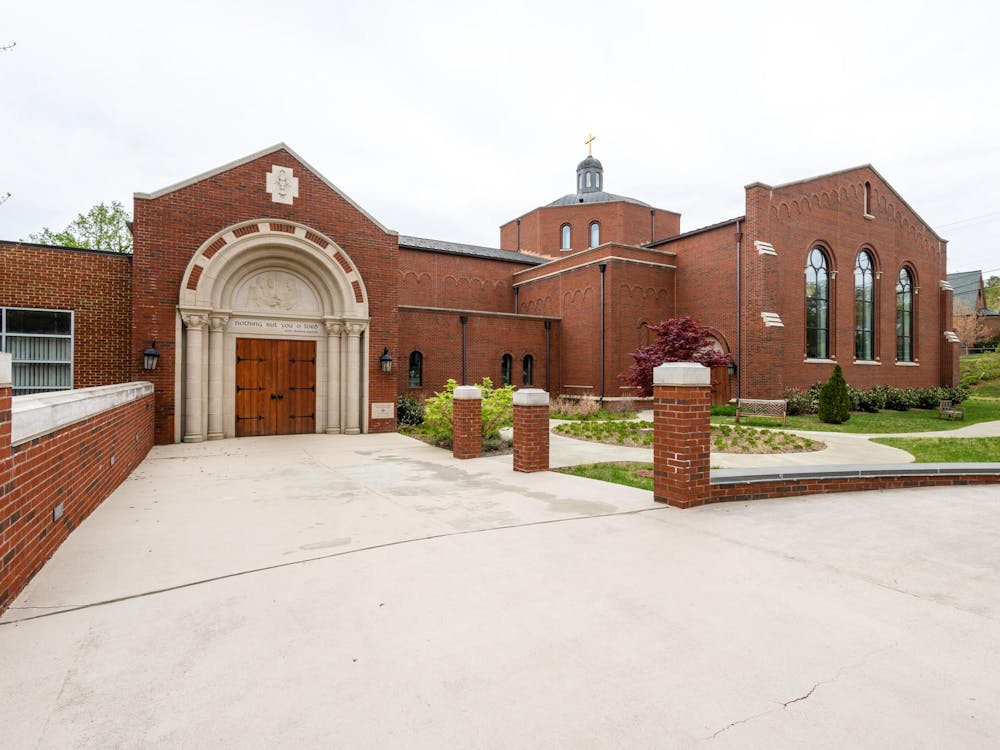The Honor Committee passed an amended Code of Ethics for the first time since 2019 and discussed the implementation of their academic course sanction at the meeting Sunday. With 20 out of 27 members present, the Committee met quorum and was able to vote on matters concerning the constitution or bylaws.
The amended version of the Code of Ethics mandates that all Committee members keep all information regarding cases confidential. This was always an expectation of Committee members, but was not explicit language in the Code. Additionally, the language regarding compensation for Committee members or support officers was clarified to prohibit “compensation or other benefit.” A section detailing guidelines for Honor educators was added in addition to the pre-existing section for advisors and counsel.
Committee members proposed these changes to the Code of Ethics in the two previous meetings. The Code of Ethics is a set of guidelines for the conduct of Committee members and Honor support officers, who help educate the community about Honor and guide students through the Honor process.
In addition to the voted changes, Hamza Aziz, chair of the Committee and fourth-year College student, asked committee members their opinion on an additional language change to the Code of Ethics that would create a guideline for members to attend in-person meetings. The proposal would change the language to say “make every reasonable effort to attend Committee meetings in-person” instead of “attend Committee meetings.”
Over the summer, the Committee often met exclusively online because some members did not stay in Charlottesville. Currently, Committee members have the option to attend the meetings virtually, creating a hybrid setup for Committee meetings. Under Aziz’s proposed addition, Zoom attendance for meetings would still be an option, just discouraged.
Second-year Engineering Rep. Alexander Church agreed with this change and said it would be better for Committee discussion.
Law Rep. MK O’Boyle disagreed with the proposed addition, citing a need for consideration of the different lives of Committee members.
“As a graduate student, there's a diversity of life stages represented,” O’Boyle said. “I don't love the ‘in-person’ language.”
Aziz also talked about how this would affect graduate students, giving representatives of the School of Continuing and Professional Studies as an example.
“There are some reps who will never be able to reach [in-person attendance],” Aziz said. [For example] all of our [School of Continuing and Professional Studies] reps don't live in Charlottesville.”
The Committee ultimately decided to not include the additional guideline promoting in-person meeting attendance to the Code of Ethics, retaining their current hybrid setup.
Additionally, fourth-year Commerce Rep. Brianna Kamdoum talked about the importance of making sure that each Committee member was abiding by the Code of Ethics.
“We should evaluate how [the Code of Ethics] will actually be enforced,” Kamdoum said. “How is it we're going to keep track of each [representative] and make sure they're abiding by the Code of Ethics?”
Currently, there is only an informal expectation that Committee members can raise issues of noncompliance against fellow Committee members when appropriate. There is no formal language on compliance in the amended version of the Code of Ethics.
The Committee also discussed the implementation process of an education sanction that had been previously discussed in April.
The education sanction will include a seven-week course led by a combination of Honor educators, guest speakers, professors and former offenders. The objective of the course would be to allow offenders to analyze their personal values and reflect on the Honor system.
Aziz said that the first seven-week course will start the week of Oct. 9 — two students have received education as a sanction as of now.
Training for the facilitators of the academic course will take place Sept. 24, in partnership with the Virginia Center for Inclusive Communities — an organization that works with schools to address prejudice to improve academic achievement. The Committee will continue to finalize details of the sanction, including location and scheduling, by the end of this week.
Additionally, the Committee also introduced two newly elected members — Graduate Data Science Rep. Brendan Puglisi and Graduate Data Science Rep. Matthew Bonner — both representing the School of Data Science. These spots were added to the Committee to represent the School of Data Science, which was approved to offer an undergraduate B.S. degree in May’s Board meetings.
As for executive and school specific updates, there are currently six active investigations, and the first hearing of the semester will be held Oct. 21.
Additionally, the Selections and Recruitment Committee is currently in the process of reviewing applications for Honor support officers. Interviews will be held next week, and a dinner to welcome selected support officers will be held Sept. 26.
The Committee adjourned the meeting at the scheduled end time of 8 p.m. The next Honor Committee meeting will be held Sunday at 7 p.m. in the Trial Room of Newcomb Hall.







